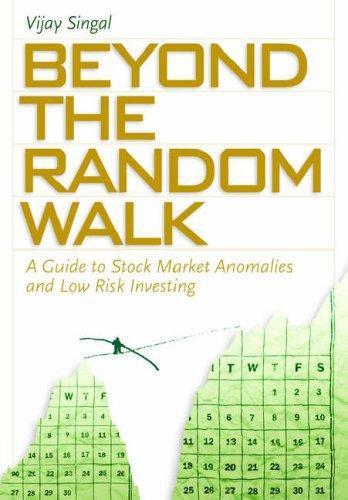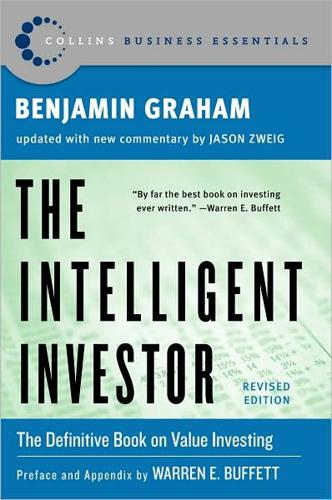3Com Palm IPO
6 results back to index

pages: 297 words: 91,141
Market Sense and Nonsense by Jack D. Schwager
3Com Palm IPO, asset allocation, Bear Stearns, Bernie Madoff, Black Monday: stock market crash in 1987, Brownian motion, buy and hold, collateralized debt obligation, commodity trading advisor, computerized trading, conceptual framework, correlation coefficient, Credit Default Swap, credit default swaps / collateralized debt obligations, diversification, diversified portfolio, fixed income, global macro, high net worth, implied volatility, index arbitrage, index fund, Jim Simons, junk bonds, London Interbank Offered Rate, Long Term Capital Management, low interest rates, managed futures, margin call, market bubble, market fundamentalism, Market Wizards by Jack D. Schwager, merger arbitrage, negative equity, pattern recognition, performance metric, pets.com, Ponzi scheme, proprietary trading, quantitative trading / quantitative finance, random walk, risk free rate, risk tolerance, risk-adjusted returns, risk/return, Robert Shiller, selection bias, Sharpe ratio, short selling, statistical arbitrage, statistical model, subprime mortgage crisis, survivorship bias, tail risk, transaction costs, two-sided market, value at risk, yield curve

pages: 369 words: 128,349
Beyond the Random Walk: A Guide to Stock Market Anomalies and Low Risk Investing by Vijay Singal
3Com Palm IPO, Andrei Shleifer, AOL-Time Warner, asset allocation, book value, buy and hold, capital asset pricing model, correlation coefficient, cross-subsidies, currency risk, Daniel Kahneman / Amos Tversky, diversified portfolio, endowment effect, fixed income, index arbitrage, index fund, information asymmetry, information security, junk bonds, liberal capitalism, locking in a profit, Long Term Capital Management, loss aversion, low interest rates, margin call, market friction, market microstructure, mental accounting, merger arbitrage, Myron Scholes, new economy, prediction markets, price stability, profit motive, random walk, Richard Thaler, risk free rate, risk-adjusted returns, risk/return, selection bias, Sharpe ratio, short selling, short squeeze, survivorship bias, Tax Reform Act of 1986, transaction costs, uptick rule, Vanguard fund

pages: 670 words: 194,502
The Intelligent Investor (Collins Business Essentials) by Benjamin Graham, Jason Zweig
3Com Palm IPO, accounting loophole / creative accounting, air freight, Alan Greenspan, Andrei Shleifer, AOL-Time Warner, asset allocation, book value, business cycle, buy and hold, buy low sell high, capital asset pricing model, corporate governance, corporate raider, Daniel Kahneman / Amos Tversky, diversified portfolio, dogs of the Dow, Eugene Fama: efficient market hypothesis, Everybody Ought to Be Rich, George Santayana, hiring and firing, index fund, intangible asset, Isaac Newton, John Bogle, junk bonds, Long Term Capital Management, low interest rates, market bubble, merger arbitrage, Michael Milken, money market fund, new economy, passive investing, price stability, Ralph Waldo Emerson, Richard Thaler, risk tolerance, Robert Shiller, Ronald Reagan, shareholder value, sharing economy, short selling, Silicon Valley, South Sea Bubble, Steve Jobs, stock buybacks, stocks for the long run, survivorship bias, the market place, the rule of 72, transaction costs, tulip mania, VA Linux, Vanguard fund, Y2K, Yogi Berra

pages: 500 words: 145,005
Misbehaving: The Making of Behavioral Economics by Richard H. Thaler
3Com Palm IPO, Alan Greenspan, Albert Einstein, Alvin Roth, Amazon Mechanical Turk, Andrei Shleifer, Apple's 1984 Super Bowl advert, Atul Gawande, behavioural economics, Berlin Wall, Bernie Madoff, Black-Scholes formula, book value, business cycle, capital asset pricing model, Cass Sunstein, Checklist Manifesto, choice architecture, clean water, cognitive dissonance, conceptual framework, constrained optimization, Daniel Kahneman / Amos Tversky, delayed gratification, diversification, diversified portfolio, Edward Glaeser, endowment effect, equity premium, equity risk premium, Eugene Fama: efficient market hypothesis, experimental economics, Fall of the Berlin Wall, George Akerlof, hindsight bias, Home mortgage interest deduction, impulse control, index fund, information asymmetry, invisible hand, Jean Tirole, John Nash: game theory, John von Neumann, Kenneth Arrow, Kickstarter, late fees, law of one price, libertarian paternalism, Long Term Capital Management, loss aversion, low interest rates, market clearing, Mason jar, mental accounting, meta-analysis, money market fund, More Guns, Less Crime, mortgage debt, Myron Scholes, Nash equilibrium, Nate Silver, New Journalism, nudge unit, PalmPilot, Paul Samuelson, payday loans, Ponzi scheme, Post-Keynesian economics, presumed consent, pre–internet, principal–agent problem, prisoner's dilemma, profit maximization, random walk, randomized controlled trial, Richard Thaler, risk free rate, Robert Shiller, Robert Solow, Ronald Coase, Silicon Valley, South Sea Bubble, Stanford marshmallow experiment, statistical model, Steve Jobs, sunk-cost fallacy, Supply of New York City Cabdrivers, systematic bias, technology bubble, The Chicago School, The Myth of the Rational Market, The Signal and the Noise by Nate Silver, The Wealth of Nations by Adam Smith, Thomas Kuhn: the structure of scientific revolutions, transaction costs, ultimatum game, Vilfredo Pareto, Walter Mischel, zero-sum game

pages: 505 words: 142,118
A Man for All Markets by Edward O. Thorp
"RICO laws" OR "Racketeer Influenced and Corrupt Organizations", 3Com Palm IPO, Alan Greenspan, Albert Einstein, asset allocation, Bear Stearns, beat the dealer, Bernie Madoff, Black Monday: stock market crash in 1987, Black Swan, Black-Scholes formula, book value, Brownian motion, buy and hold, buy low sell high, caloric restriction, caloric restriction, carried interest, Chuck Templeton: OpenTable:, Claude Shannon: information theory, cognitive dissonance, collateralized debt obligation, Credit Default Swap, credit default swaps / collateralized debt obligations, diversification, Edward Thorp, Erdős number, Eugene Fama: efficient market hypothesis, financial engineering, financial innovation, Garrett Hardin, George Santayana, German hyperinflation, Glass-Steagall Act, Henri Poincaré, high net worth, High speed trading, index arbitrage, index fund, interest rate swap, invisible hand, Jarndyce and Jarndyce, Jeff Bezos, John Bogle, John Meriwether, John Nash: game theory, junk bonds, Kenneth Arrow, Livingstone, I presume, Long Term Capital Management, Louis Bachelier, low interest rates, margin call, Mason jar, merger arbitrage, Michael Milken, Murray Gell-Mann, Myron Scholes, NetJets, Norbert Wiener, PalmPilot, passive investing, Paul Erdős, Paul Samuelson, Pluto: dwarf planet, Ponzi scheme, power law, price anchoring, publish or perish, quantitative trading / quantitative finance, race to the bottom, random walk, Renaissance Technologies, RFID, Richard Feynman, risk-adjusted returns, Robert Shiller, rolodex, Sharpe ratio, short selling, Silicon Valley, Stanford marshmallow experiment, statistical arbitrage, stem cell, stock buybacks, stocks for the long run, survivorship bias, tail risk, The Myth of the Rational Market, The Predators' Ball, the rule of 72, The Wisdom of Crowds, too big to fail, Tragedy of the Commons, uptick rule, Upton Sinclair, value at risk, Vanguard fund, Vilfredo Pareto, Works Progress Administration

Principles of Corporate Finance by Richard A. Brealey, Stewart C. Myers, Franklin Allen
3Com Palm IPO, accelerated depreciation, accounting loophole / creative accounting, Airbus A320, Alan Greenspan, AOL-Time Warner, Asian financial crisis, asset allocation, asset-backed security, banking crisis, Bear Stearns, Bernie Madoff, big-box store, Black Monday: stock market crash in 1987, Black-Scholes formula, Boeing 747, book value, break the buck, Brownian motion, business cycle, buy and hold, buy low sell high, California energy crisis, capital asset pricing model, capital controls, Carl Icahn, Carmen Reinhart, carried interest, collateralized debt obligation, compound rate of return, computerized trading, conceptual framework, corporate governance, correlation coefficient, credit crunch, Credit Default Swap, credit default swaps / collateralized debt obligations, cross-border payments, cross-subsidies, currency risk, discounted cash flows, disintermediation, diversified portfolio, Dutch auction, equity premium, equity risk premium, eurozone crisis, fear index, financial engineering, financial innovation, financial intermediation, fixed income, frictionless, fudge factor, German hyperinflation, implied volatility, index fund, information asymmetry, intangible asset, interest rate swap, inventory management, Iridium satellite, James Webb Space Telescope, junk bonds, Kenneth Rogoff, Larry Ellison, law of one price, linear programming, Livingstone, I presume, London Interbank Offered Rate, Long Term Capital Management, loss aversion, Louis Bachelier, low interest rates, market bubble, market friction, money market fund, moral hazard, Myron Scholes, new economy, Nick Leeson, Northern Rock, offshore financial centre, PalmPilot, Ponzi scheme, prediction markets, price discrimination, principal–agent problem, profit maximization, purchasing power parity, QR code, quantitative trading / quantitative finance, random walk, Real Time Gross Settlement, risk free rate, risk tolerance, risk/return, Robert Shiller, Scaled Composites, shareholder value, Sharpe ratio, short selling, short squeeze, Silicon Valley, Skype, SpaceShipOne, Steve Jobs, subprime mortgage crisis, sunk-cost fallacy, systematic bias, Tax Reform Act of 1986, The Nature of the Firm, the payments system, the rule of 72, time value of money, too big to fail, transaction costs, University of East Anglia, urban renewal, VA Linux, value at risk, Vanguard fund, vertical integration, yield curve, zero-coupon bond, zero-sum game, Zipcar